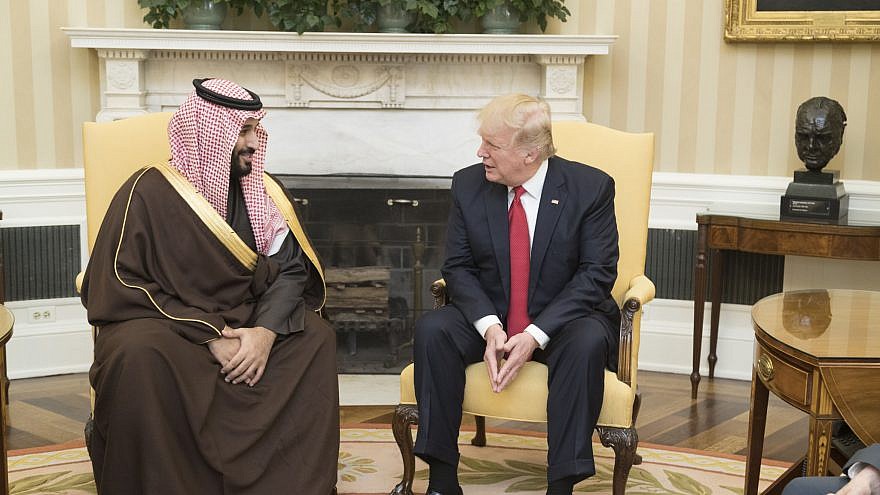This week’s Warsaw summit was supposed to be about rallying the world against the threat that Iran poses to international peace. But given the complete lack of interest on the part of either America’s Western European allies or the Russians in reconsidering the disastrous nuclear deal that empowered and enriched Tehran, that was never going to work.
But the United States is also reportedly hoping to use the gathering to help set the stage for a renewed effort to broker peace between Israel and the Palestinians that the administration has been preparing for the last two years. The problem with that approach is that Trump or presidential adviser/son-in-law Jared Kushner have grasped one element of the region that eluded their predecessors, though they still don’t understand the intractable nature of the conflict.
It is also true that, thanks to Iran, these same nations have found themselves in a far closer embrace with Israel than anyone would have expected a decade ago. The Obama administration’s policy of allowing Syria to descend into chaos, which was exploited by both Russia and Iran, threatened the security of the entire region. Even worse, Obama’s appeasement of Iran made the Arab states think that the United States was abandoning them.
At that point, under-the-table relations between most of the Arab world and Israel shifted to the point where most of these nations no longer even bothered to pretend that they were hostile to the Jewish state or cared much about the Palestinians. Egypt and Israel moved from a cold peace to a warm alliance, at least as far as the two governments were concerned. And the Saudis, who were once a bastion of religious-based hate against Israel, shifted into a stance in which the two nations not only secretly cooperated on security, but where its de facto leader, Crown Prince Mohammed bin Salman, has endorsed the Jewish state’s right to exist.
This was something that frustrated Obama, who had no more patience for Arab concerns about his reckless embrace of Iran than he had for Israel’s justified fears.
But it was something that Trump and his foreign-policy team understood because of their own rejection of the nuclear deal. Trump’s instincts on Iran have been correct, and despite the chorus of foreign-policy establishment critics predicting doom, the administration’s re-imposition of sanctions on Iran has put Tehran in a bind from which their feckless European trading partners can’t save them.
But the belief that this creates an environment in which an Israeli-Palestinian deal is possible is unrealistic. What’s more, by pushing to move relations between Israel and its Arab partners completely into the open, Washington may now be sabotaging their efforts against Iran.
The notion that Arab money and influence—even the enormous resources and prestige of the Saudis—could force the Palestinians to do something they have spent the last century refusing to do was always fanciful. As the Palestinian Authority has made clear in the last two years, they have no interest in a deal brokered by Trump because they rightly understand that he is not prepared to indulge their fantasies about isolating Israel or forcing disastrous concessions in the way that Obama did.
They still want the West to impose a deal on Israel that would undermine its security and rights. And they want to achieve that without recognizing the legitimacy of a Jewish state, no matter where its borders are drawn, or to force the disarmament of Hamas. Since their political culture remains stuck in the same mindset of a 100-year-old war on Zionism that their leaders haven’t the courage or the will to renounce, no amount of Gulf state cash or pressure will change this.
Much of the Arab world would probably be content to let the status quo continue. But by pushing them to take their close relations with Israel out into the open, Trump is making a mistake. As much as these countries fear Iran and have zero interest in a conflict with Israel, their leaders also know that such a stand is deeply unpopular among their populations, who have been influenced by the rising tide of anti-Semitism that has swept through the Arab and Muslim world in recent years, which has only further inflamed longstanding hatreds against Jews.
Though the Saudi crown prince wants to change his country and has little sympathy for the Palestinians, even he knows that his government’s status as guardian of the Muslim holy places will be endangered by appearing to be too close to the Jews or by failing to pay lip service to outrageous Palestinian demands. And whatever leeway he might have had has been undermined by the world’s outrage about his regime’s murder of Washington Post journalist Jamal Khashoggi.
Pushing the Arab states to openly embrace Israel weakens their resolve against Iran. To do so on behalf of a peace plan that everybody already knows is dead on arrival because of Palestinian intransigence makes no sense.
Perhaps Trump is still too besotted with the notion of being the man who cuts the Gordian Knot of Middle East peace with a “deal of century” to see that Kushner’s efforts are a waste of time. But if the president doesn’t want to undermine his much-needed push on Iran, then he needs to back down on the Israel-Palestinian front. The key for success in Warsaw must be to resist the temptation for public diplomacy in the Middle East when the interests of the United States and regional stability call for letting some relationships remain under wraps.


























